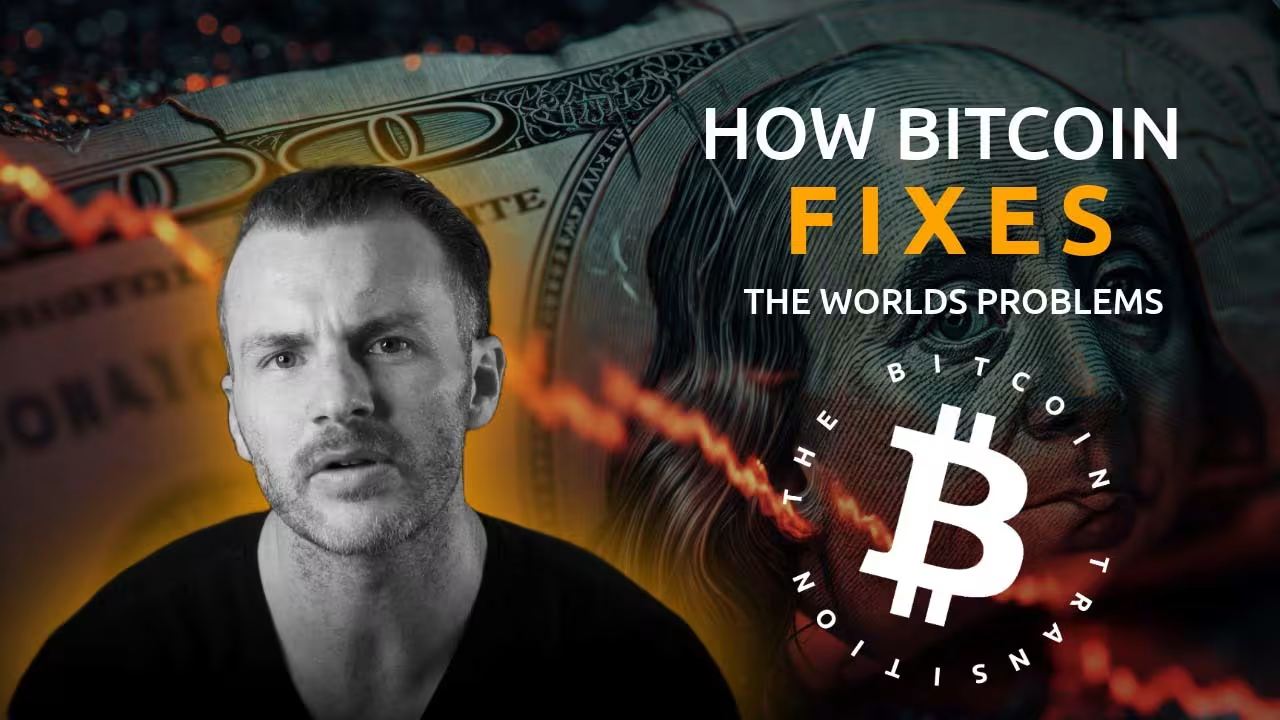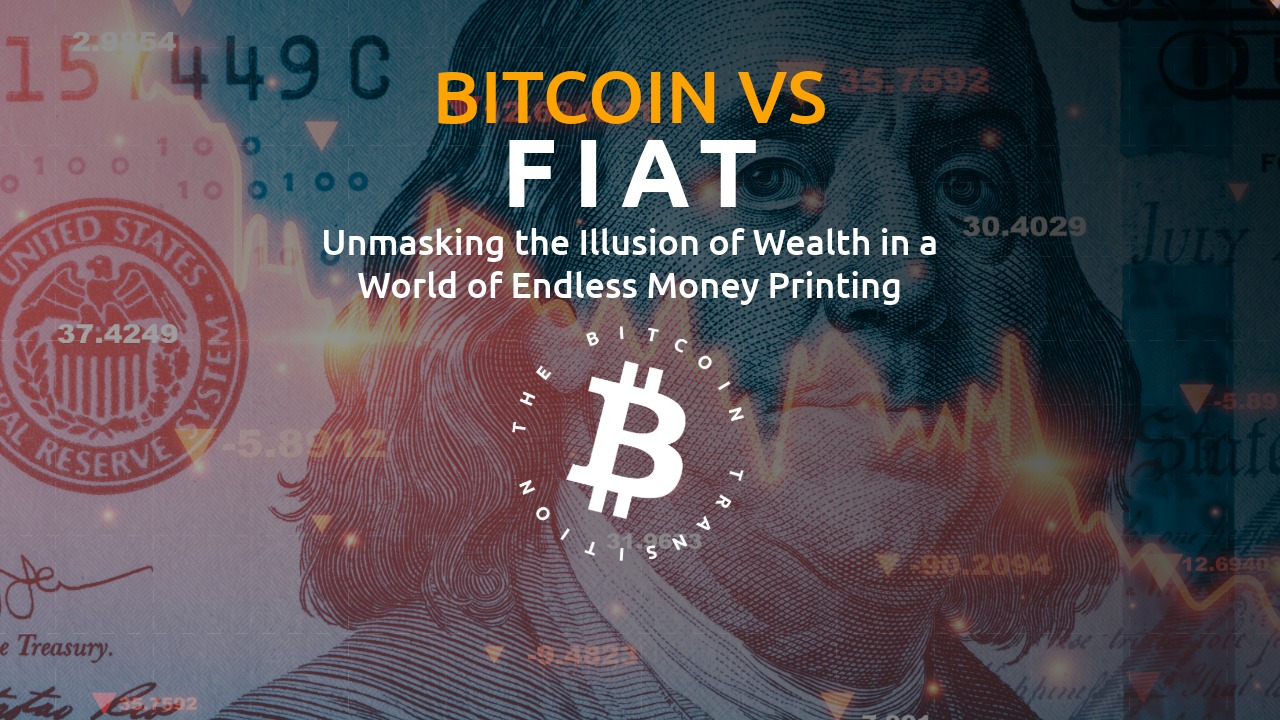Bitcoin: The Foundation for a New Monetary Order in the Midst of Global Breakdown
Bitcoin: The Foundation for a New Monetary Order in the Midst of Global Breakdown

Introduction
In his latest piece, Don’t Make the Mistake of Thinking That What’s Now Happening is Mostly About Tariffs, legendary investor Ray Dalio describes a world teetering on the edge of systemic breakdown. He outlines five converging forces: unsustainable debt, political fragmentation, geopolitical upheaval, natural disruptions, and technological transformation—especially artificial intelligence. While his diagnosis is accurate, his prescription is missing a key piece: Bitcoin.
The world doesn’t just need to manage the fallout from a broken system. It needs to transition to a better one.
Enter Bitcoin—not as an asset class, but as a new economic foundation built on hard money principles that can realign global incentives, restore balance to trade and capital markets, and revive prosperity without relying on debt-based inflationary policy.
1. Bitcoin Solves the Debt Crisis with Hard Money Principles
Dalio rightly highlights the terminal phase of our debt cycle: governments and consumers alike are over-leveraged, trapped in a hamster wheel of borrowing and printing. This model requires continuous inflation to keep the wheels spinning, devaluing currencies and eroding purchasing power just to manage old debt.
Bitcoin breaks this cycle by removing the ability to arbitrarily expand the money supply. With a hard cap of 21 million coins, Bitcoin disincentivizes reckless borrowing and spending, while encouraging savings and capital discipline. In a Bitcoin-denominated economy:
• Governments would be unable to fund endless wars or bailouts with printed money.
• Inflation would disappear, replaced by deflationary abundance as technology and productivity increase.
• Savers are rewarded with rising purchasing power, not punished for holding cash.
2. AI + Bitcoin = Deflationary Prosperity, Not Collapse
Dalio touches on the role of AI and robotics in accelerating change—but what he fears as a destabilizing force is, in truth, a liberation when paired with a Bitcoin standard.
AI is inherently deflationary. It increases output, reduces costs, and replaces expensive human labour. In a fiat system, this deflation causes panic—because it makes debt harder to repay and derails inflationary targets.
But under a Bitcoin standard, deflation is a feature, not a bug.
• Wages go further each year.
• The cost of living drops.
• Time preference lowers—people invest in the future, not chase immediate returns.
• Governments must operate within their means, no longer able to print away their obligations.
The Bitcoin Transition welcomes this future—a world where technological advancement no longer requires inflationary destruction.
3. Trade Imbalances and Capital Flows Reset on a Bitcoin Standard
Dalio is correct: the current monetary system, where the U.S. runs massive deficits while China lends back its surplus via bond purchases, is not sustainable. It has led to capital misallocation, industrial hollowing, and growing distrust among trading partners.
Bitcoin fixes this by removing national currencies from the equation entirely.
• Bitcoin becomes the neutral settlement layer—trustless, borderless, and resistant to manipulation.
• Trade is settled in real-time in a finite asset that no nation controls.
• Capital flows are market-driven, not politically engineered.
• Countries can no longer weaponize debt or manipulate FX markets to game global trade.
The end result? Fair, balanced trade relationships—without the risk of currency wars, sanctions, or retaliatory tariffs.
4. Political Polarization and Social Unrest: Symptoms of Fiat Decay
Dalio notes that political systems are breaking down under the weight of inequality and distrust. He’s absolutely right.
But this isn’t just a political problem—it’s a monetary problem.
Since abandoning the gold standard in 1971, productivity and wages have decoupled. Assets have inflated, the rich got richer, and the middle class fell into debt to keep up. People were forced to become speculators just to survive.
Bitcoin reverses this dynamic:
• It aligns productivity with compensation.
• It restores a savings-based economy.
• It removes the power of central banks and unelected bureaucrats to manipulate wealth distribution.
Money with no master is the only way to rebuild trust in an era of institutional failure.
5. Bitcoin Aligns with Nature and Decentralised Systems
Ray also mentions climate risks and natural events. The current system’s response is centralization, taxation, and political control. But Bitcoin aligns with natural systems:
• Its energy use trends toward stranded and renewable sources due to miner profit incentives.
• It relies on proof of work, mimicking nature’s requirement of energy and cost to create value.
• It is inherently decentralised, mirroring the distributed, resilient systems found in biology and nature.
Conclusion: The Bitcoin Transition Is Inevitable
Ray Dalio’s analysis offers a sobering reminder that we are witnessing the breakdown of the old monetary, political, and geopolitical order. But his worldview still resides within the old paradigm—one where solutions come from more policy, better regulators, and improved leadership.
That era is over.
The future will not be saved by more centralisation. It will be saved by decentralised protocols, free market incentives, and hard money that cannot be debased.
Bitcoin is not just an asset—it is the foundation of a new system.
At The Bitcoin Transition, we’re building that system now—brick by brick, node by node, sats by sat. For individuals. For families. For businesses.
We don’t need to wait for the next crisis to start.
We just need to stop playing their game—and start building our own.


